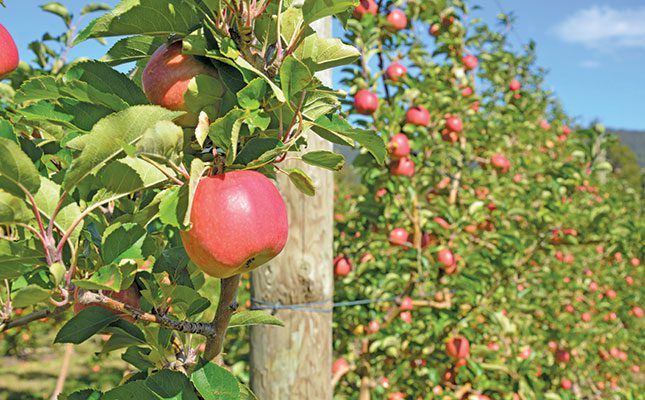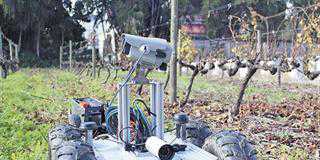
Photo: Wikimedia Commons
Why should farmers move away from conventional fertilisers to more environmentally friendly fertilisers?
Viktor Sukau (VS): For several reasons. The first is to reduce environmental pollution. Conventional fertilisers, which are typically made from synthetic chemicals, can cause water and soil pollution. These chemicals seep into groundwater and nearby bodies of water, leading to contamination and harming aquatic life. Environmentally friendly fertilisers, by contrast, tend to be derived from natural sources and are less likely to cause pollution.
The second reason is to improve soil health. Overuse of conventional fertiliser can lead to nutrient depletion in the soil, making it less fertile and reducing crop yield over time. By contrast, environmentally friendly fertilisers, such as organic fertilisers, can help to improve soil health and fertility, leading to more productive and sustainable agriculture.
The third reason is to ensure healthier food. Conventional fertilisers can leave residue on crops that’s harmful to human health, whereas organic fertilisers are typically safer and healthier.
A fourth reason is to reduce greenhouse gas emissions. Conventional fertilisers are often produced with fossil fuels, which leads to greenhouse gas emissions that contribute to climate change. Environmentally friendly fertilisers tend to have a lower carbon footprint and can help to reduce greenhouse gas emissions.
Overall, transitioning to environmentally friendly fertilisers can lead to improved environmental and human health outcomes, while promoting more sustainable and productive agriculture.
Are conventional fertilisers more cost-effective then environmentally friendly fertilisers?
VS: In general, they may be cheaper in the short term, as they are often mass-produced using synthetic chemicals. It’s important, however, to consider the long-term costs and benefits of using conventional versus environmentally friendly fertilisers. Overuse of conventional fertilisers can lead to soil degradation and reduced crop yield, which can ultimately result in higher costs for farmers. Additionally, the negative environmental impacts of conventional fertilisers can result in the long-term costs of having to clean up pollution and mitigate the effects of climate change.
While environmentally friendly fertilisers may be more expensive to produce and purchase initially, they can lead to improved soil health and productivity in the long term, potentially reducing costs and increasing profit over time. In addition, environmentally friendly farming practices can appeal to consumers who are willing to pay a premium for sustainably produced food, which can provide a market advantage for farmers.
In general, the cost-effectiveness of conventional versus environmentally friendly fertilisers depends on a number of factors, including the specific products being compared, the farming practices used, and the long-term economic and environmental impacts of each option.
What are the long-term benefits of using more environmentally friendly fertilisers?
VS: There are quite a few benefits:
Improved soil health
Environmentally friendly fertilisers can help to improve soil structure and fertility, leading to better water retention, nutrient availability and crop growth over time. This can ultimately lead to higher crop yield and more sustainable agriculture.
Reduced environmental pollution
They are usually derived from natural sources and are thus less likely to cause pollution, as I mentioned before. This can lead to healthier ecosystems, cleaner waterways, and reduced risks to human and animal health. In contrast, conventional fertilisers can cause water and soil pollution due to the synthetic chemicals they contain.
Improved biodiversity
They can help to promote biodiversity by creating healthier ecosystems and providing habitats for a variety of plant and animal species. This can lead to improved soil health, reduced erosion, and more resilient agricultural systems over time.
Healthier food
Environmentally friendly fertilisers tend to produce healthier crops that are free from harmful residues and chemicals. These appeal to consumers who are concerned about their health and the environmental impact of the food they eat.
Overall, using more environmentally friendly fertilisers can lead to a range of long-term benefits for farmers, consumers and the environment. By investing in sustainable and regenerative farming practices, we can help to ensure a healthier, more resilient future for both agriculture and our planet.
Do you think the trend towards ‘going green’ is likely to continue, considering current global economic pressures?
VS: Yes, I believe it will, for a number of reasons:
Economic benefits
Many environmentally friendly practices, such as reducing energy consumption, using renewable energy sources, and adopting sustainable farming practices, can lead to cost savings and increased profitability over time. As businesses and individuals become more aware of these benefits, they may be more likely to adopt sustainable practices even in times of economic uncertainty.
Regulatory pressures
Governments and regulatory bodies are increasingly imposing regulations to push businesses to adopt more environmentally friendly practices. This can create a sense of urgency and momentum to maintain these efforts even during times of economic pressure.
Consumer demand
Consumer preferences are shifting towards more sustainable and ethical products, for which many people are willing to pay a premium. As demand continues growing, businesses will be increasingly motivated to adopt sustainable practices to remain competitive.
In general, while there may be economic pressures that could potentially slow the trend towards ‘going green’, growing awareness of the economic, regulatory and consumer benefits of sustainability should continue to drive progress towards a more sustainable future.
What is the product development process for Manaseer Natural Green [MNG]?
Anton Prysiazhniuk (AP): Our company has a unique advantage over the giants of the chemical industry and the major producers of mineral fertilisers: we can adapt quickly to the evolving landscape of modern agriculture.
As countries such as South Africa experience changes in climate, planting conditions and crop needs, we can offer solutions tailored to meet these specific challenges. Unlike larger corporations that rely solely on the use of [nitrogen-phosphorus-potassium fertiliser products], our technology enables us to react quickly and customise fertiliser application to suit the growth plan for each farm.
Our approach is more agile and mobile, ensuring that we provide only what’s necessary for optimal plant growth and the production of high-quality agricultural products.
We also eliminate unnecessary elements of established protocols, which helps to reduce costs while increasing efficiency. By offering complex technology that’s customised to the needs of each region, country and farm, we can deliver the best possible results for our customers.
Ultimately, we’re dedicated to providing farmers with the tools they need to thrive in an ever-changing world.
What prompted the development of these products?
VS: In short, demand for organic, sustainable agriculture practices and the need for effective fertilisers that minimise environmental impact. Organic agriculture has gained popularity due to concerns about the negative environmental and health issues associated with conventional agriculture, such as the use of synthetic fertilisers and pesticides. Organic agriculture also emphasises soil health and biodiversity, which can be supported by using natural organic fertilisers.
In addition, many countries have promulgated regulations to limit the use of chemical fertilisers and promote organic and sustainable agriculture practices. MNG products were developed to meet these regulations.
MNG has invested in research and development to create new products that are high-quality, locally sourced, and environmentally friendly.
What are ‘micronised’ and ‘energetically enhanced’ mineral fertilisers? How are they different from conventional fertilisers?
VS: The smaller particle size of micronised fertilisers leads to more efficient nutrient absorption by plants, which can result in increased crop yield. Energetically enhanced fertilisers may also help to increase nutrient availability and uptake, which can improve
plant growth. In addition, micronised and energetically enhanced fertilisers may have a lower environmental impact than conventional fertilisers.
Because they’re more efficient, farmers may be able to use lower application rates, reducing the amount of fertiliser released into the environment.
Overall, micronised and energetically enhanced fertilisers represent an alternative to conventional fertilisers that may offer improved efficiency, effectiveness, and environmental sustainability.
MNG is actually a joint venture [JV] between Natural Green Switzerland and Manaseer Group Jordan. Please explain.
AP: It’s an equal partnership built on strong fundamentals and synergy. Natural Green and Manaseer joined forces to introduce a breakthrough technology and unique mineral fertilisers to farmers.
As part of the JV, Natural Green conducts ongoing research and development in production facilities in Jordan and in-field trials worldwide when dealing with end buyers. In addition, Natural Green’s mandate includes expansion to new markets, sales, trials, providing agri services attached to MNG products, product promotion, and day-to-day operation of the JV. Manaseer Group is an experienced partner mandated by the JV to run a production facility in Jordan and ensure a continuous supply of the unique minerals necessary for MNG products.
What are MNG’s main aims?
AP: To return to nature what we’ve been taking away for so long and bring all the elements of the system (soil microflora and mesofauna, seeds and plants) into the [healthiest possible balance]. At the same time, by creating a healthy environment, we seek to prevent plant and soil illnesses. We also aim to improve food safety.
Where do you see the company over the next five to 10 years?
VS: MNG is moving in several directions supported by its current activities and by industry trends. Based on the company’s focus on sustainability and innovation, it will continue to invest in research and development to create new and innovative products that meet the growing demand for sustainable agriculture practices. This may include the development of new mineral/organic fertilisers and other sustainable agriculture products.
MNG is also expanding its market reach by increasing its distribution network and partnering with other companies in the agriculture sector. By doing so, it will be able to reach more customers and increase its market share.
Moreover, as the sector continues to face climate change and environmental degradation, demand for sustainable and environmentally friendly agriculture practices is likely to increase. This presents an opportunity for MNG to expand its product line and market share by providing effective solutions to farmers and agribusinesses.
MNG will continue to innovate and respond to changing market demands, and will maintain its commitment to sustainable agriculture and environmental stewardship.
Visit manaseergroup.com











